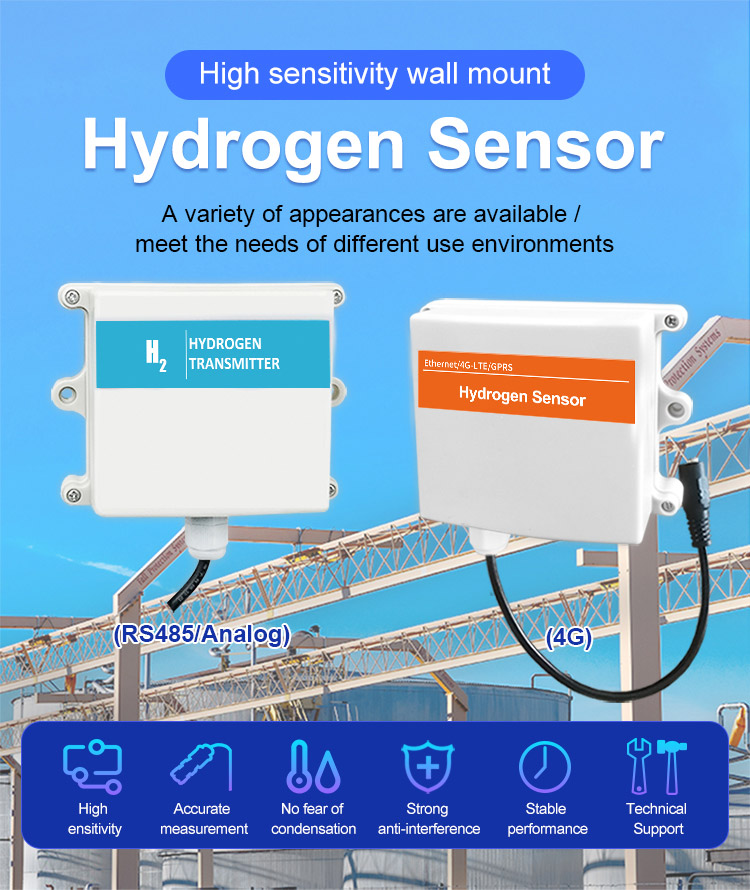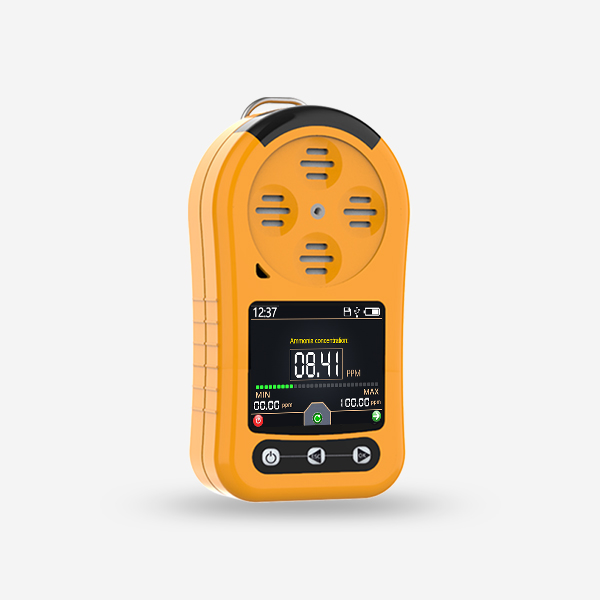But with the growth of Hydrogen implementation, hazardous gas makes its way into the business. How should you control and handle this gas, and how should you perform hydrogen gas detector?
What is Hydrogen
Used as a fuel, Hydrogen is extremely flammable, so when a Hydrogen leak occurs, a severe risk of ignition presents itself. However, Hydrogen fires are unlike fires involving ‘traditional’ fuels. When weightier fuels and hydrocarbons, like petrol or diesel, leak, they stay close to floor level.
While on the Hydrogen-side it makes one of the lightest elements on earth, so in the event that a Hydrogen leak occurs, Hydrogen rapidly levitates upwards. This fast levitation makes ignition less likely, but another difference is that Hydrogen ignites and burns more efficiently than petrol or diesel. That’s kind of the big downside of the gas… Even a spark of static electricity of a human finger is sufficient to cause an explosion when Hydrogen is in the air.
Hydrogen gas is odourless, colourless and tasteless. The gas is non-toxic, but in indoor environments, Hydrogen may build up and cause suffocation by removing all the oxygen. This danger of suffocation can be offset by adding odorants to hydrogen fuel, giving it an artificial smell and warning bystanders in case of a leak.
But as Hydrogen disperses quickly, the odorant is unlikely to travel with it. Hydrogen leaking indoors quickly collects at the ceiling level and eventually fills the room. For that reason, implementing Hydrogen gas detection with the therefore-suited gas detectors is critical in the early detection of a hydrogen leak.
Hydrogen gas detector at your company
Working with Hydrogen does not come without risks. However, the gas can be used safely when the proper repercussions are looked after. Facilitating gas detection provides a safe working environment for both the company and its employees. Regardless of whether this is portable gas detector or fixed gas detector.

A fundamental principle of handling Hydrogen is the ability to quickly and reliably test for its presence during regular inspections and if there is any reason to question that a leak has developed.
Hydrogen gas detectors commonly use several mechanisms to determine the presence and concentration of Hydrogen, including diffusion type, sample draw, gas chromatography, mass spectrometry, catalytic bead, and thermal conductivity.
Choosing the correct Hydrogen gas detector for your environment often means understanding each gas detector’s features and the environmental conditions where it will be in use. Before selecting a hydrogen detector, several functional parameters should be considered:
Performance: The optimal performance of hydrogen detectors is achieved when the most suitable sensor is selected for a specific application. Sensors can be selected with a wide operating range, optimized sensitivity, fast response times, continuous operation, and use in wet conditions.
Lifetime: In order to determine current and future application and operating costs, as well as identify replacement and maintenance needs, a suitable lifetime should be identified.
Reliability: Sensors must have long-term reliability that produces consistent results. It is also good to fully understand any testing conditions that can cause false alarms or damage the sensor in a way that will impact its reliability.
Cost: While some lower-end detectors may come with minimal costs, performance, reliability, and lifetime value should not be sacrificed. The risk that comes with an unreliable sensor is too great to cut corners.
Hydrogen gas detector calibration
So, where does that leave us when considering hydrogen gas detector calibration? Regular calibration of the gas detectors is required to guarantee the safety of your surroundings. Respect the manufacturer’s calibration interval to guarantee optimal detection.
We are a direct manufacturer of multi-parameter gas monitoring equipment and sensor equipment in various fields. We offer an industry-leading selection of multi-probe sensors. In addition to conventional gas measurement with toxic or harmful gases such as CO, SO2, NO, benzene, formaldehyde, etc.) of the sensor devices, also produces for VOC monitoring, gas monitoring, comprehensive atmospheric environmental monitoring the different production and operation, such as the scene of the special equipment monitoring system, gas sensor, the accumulation of more than 400 kinds of product category, With a good price and stunning performance.
